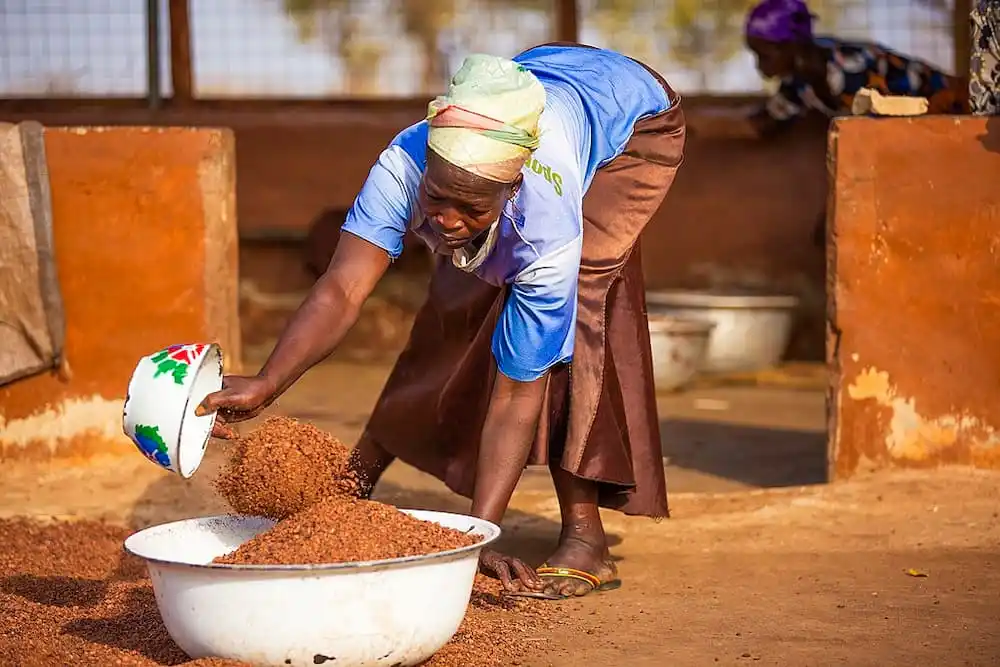Real roots: In Ghana’s northern savannahs, the shea tree isn’t just a tree — it’s a livelihood. Women’s cooperatives process over 100,000 tonnes of raw shea nuts every year, turning them into natural butter exported worldwide.
Why Shea Matters
Shea exports contribute about $200 million to Ghana’s economy annually. For many rural families, shea is the main source of seasonal income, especially for women who handle 90% of harvesting and processing.
“Shea is our gold — it puts children in school, feeds families, and connects us to the world.”
- Amina Issahaku, cooperative leader, Tamale
Sustainable and Natural
- Zero Chemicals: Artisanal shea is made with traditional methods, no additives, no synthetic processing.
- Women-Owned: Over 500 registered cooperatives empower thousands of rural women.
- Global Demand: Ghana’s shea butter is used by top beauty brands in Europe and the US.
How You Can Support
- Buy Local: Choose pure, fair-trade Ghanaian shea butter for your skin and hair care.
- Support Cooperatives: Donate or volunteer with NGOs that train women in sustainable shea processing.
- Share Stories: Spread the word about Ghana’s natural, woman-led beauty legacy.

2 Comments
Hawa Yakubu • Wa, UW
Shea butter paid my school fees! Proud to see more people buying directly from our cooperatives.
Linda Owusu • Accra, GR
I switched to local shea for my skincare — no regrets. It’s pure and supports real families!